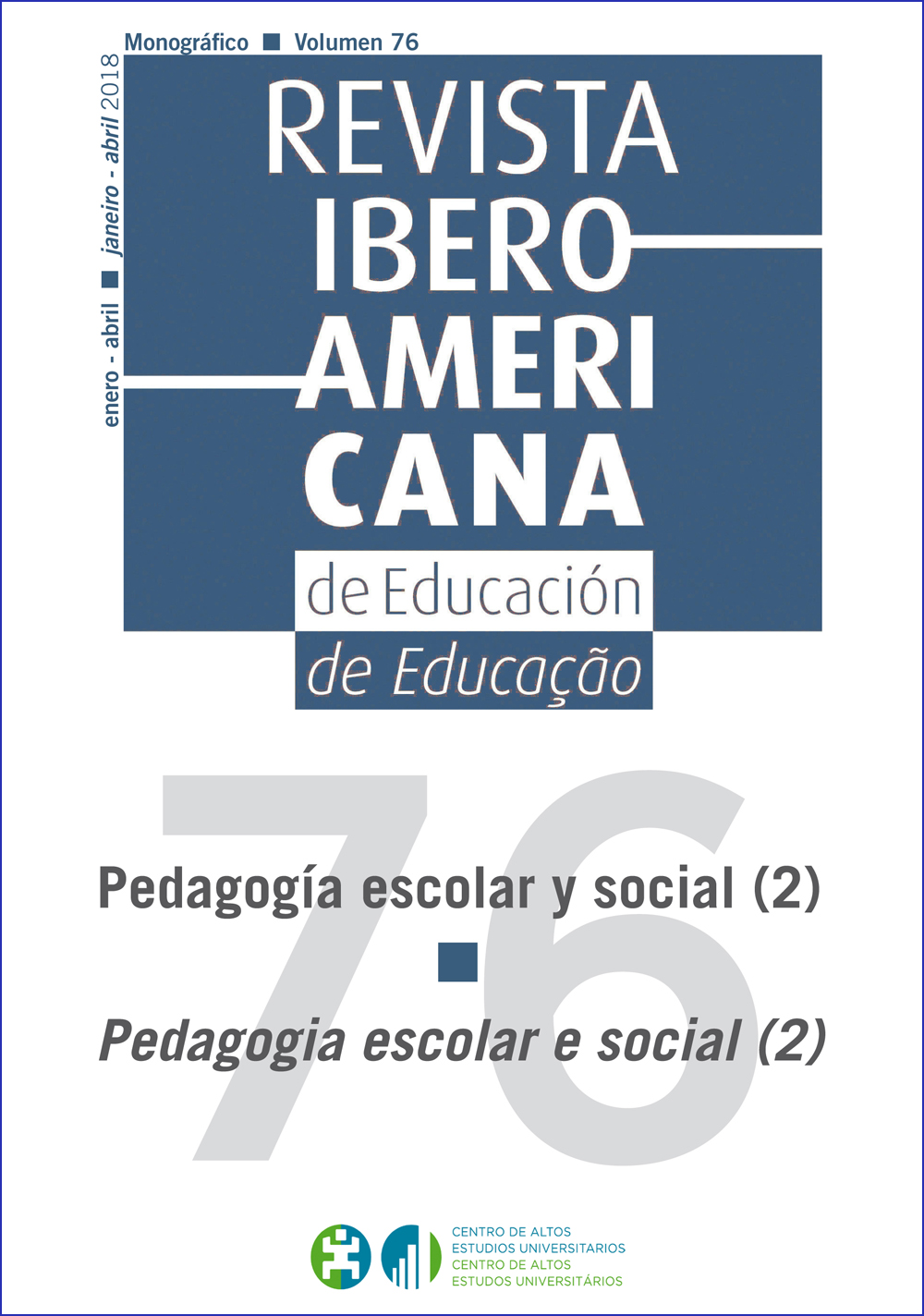When the classroom listen and dance
DOI:
https://doi.org/10.35362/rie7602852Keywords:
aesthetic education; transformative educacional practices; emancipation; danceAbstract
The themes “dancing according to the music, “making music to dance” and “dancing without music” aim to arouse curiosity, develop autonomy and stimulate the perceptions of students and teachers involved in everyday school life. Thus, we bring to this study, inserted in the theme of transformative and supportive educational practices, somereflections on the importance of the teacher in the perspective of learning, as a subject who advocates acts during a class that can often be considered as a work of art, depending on the mediation he performs in the construction of knowledge. We emphasize in this study the possibilities for new ways of looking at the school through a School and Social Pedagogy conducive to inclusive and socializing practices. In this sense, this text advances from the metaphor of listening and dancing as sensitive, artistic, aesthetic and interdisciplinary practices in a dialog with Duarte Jr., Kastrup, Meira, Rancière, Schafer and Uriarte on the emancipatory and autonomous education of those involved. We seek to emphasize the importance of learning through constant updating in the specific area and in the connection with social life and nature, understanding that the learning of arts is both a cognitive and kinesthetic activity, and that there is no learning without body registration.
Downloads
References
Clark, L. (1980). Textos de Lygia Clark, Ferreira Gullar e Mário Pedrosa. Rio de Janeiro: Funarte.
Duarte Jr., J. F. (1981). Fundamentos estéticos da Educação. São Paulo: Cortez.
Duarte Jr., J. F. (2001). O sentido dos sentidos: A educação (dos) sentidos. Curitiba: Criar Edições.
Duarte Jr., J. F. (2012). Por que Arte-Educação?. Campinas: Papirus.
Freire, P. (2004). Pedagogia da autonomia: Saberes necessários à prática educativa. São Paulo: Paz e Terra.
Katrup, V. (2007). A invenção de si e do mundo. Uma introdução do tempo e do coletivo no estudo da cognição. Belo Horizonte: Autêntica.
Lispector, C. (1998). Água viva. Rio de Janeiro: Rocco.
Martins, M. C. F. D. (2011). Arte, só na aula de arte? Educação 34(3), set./dez, Porto Alegre.
Martins, M. C. F. D. (2014). Mediações culturais e contaminações estéticas. Revista Gearte, 1(2), pp. 248-264, ago. Porto Alegre.
Meira, M. O. , 2014. Sentido de aprender pelos sentidos. In: Pillotto, S. S. D.; Bhon, L. R. D. Arte/Educação: Ensinar e aprender no Ensino Básico, pp. 53-62. Joinville: Univille,
Molina S. (2012), Vozes e Ouvidos para a música na escola. In: Jordão, G.; Allucci, R. R.; Molina, S. (Orgs.). A música na escola, pp. 7-10. São Paulo: Allucci & Associados Comunicações.
Neitzel, A. de A.; Carvalho, C. (2013). A estética na formação de professores. Revista Diálogo Educacional 13(40), set./out, Curitiba.
Rancière, J. (2013). O mestre ignorante: cinco lições sobre a emancipação intelectual. Tradução Lioian do Valle. Belo Horizonte: Autêntica.
Schafer, M. (1991). O ouvido pensante. Tradução Marisa Trench de O. Fonterrada. São Paulo: UNESP.
Uriarte, M. Z. (2015). Voz, memórias e outras sonoridades do PIBID de Música. Joinville: Univille; Itajaí: Univali.
Uriarte, M. Z. (2017). Escola, música e medicação cultural. Curitiba: Appris.
How to Cite
Downloads
Published
Issue
Section
License
Any authors who publish with this journal accept the following terms:















